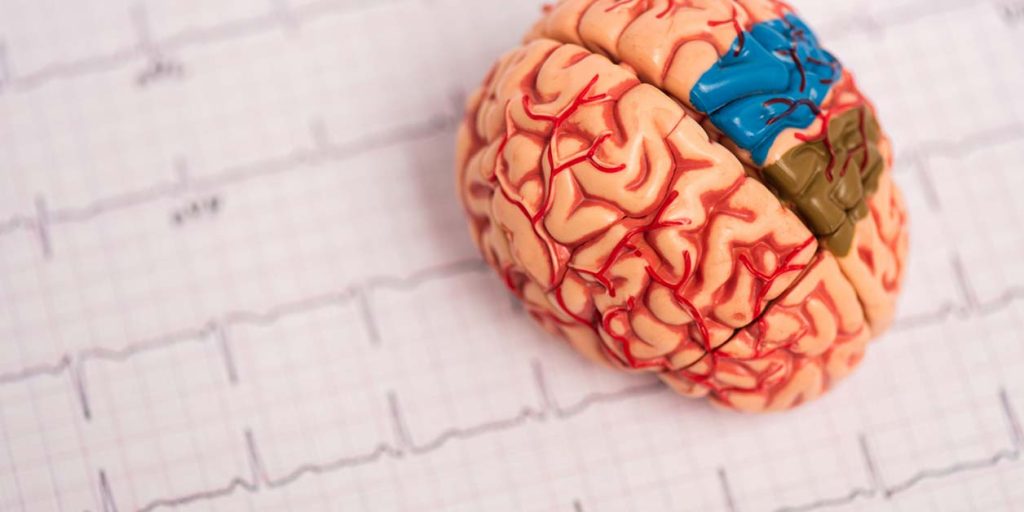Untreated ADHD in adults can be hugely detrimental. It is essential to get a diagnosis to identify the source of symptoms and access the right treatments. Managing ADHD can help individuals lead better lives and attain success in many areas.
Adults with undiagnosed ADHD often experience troubles such as poor concentration, impulsivity, and hyperactivity. These can hamper performance at work, affect relationships, and reduce self-esteem. A diagnosis from a qualified expert can give insights into brain functions and create strategies to handle symptoms.
It is also beneficial to receive specific treatments tailored to individual needs. Stimulant and non-stimulant drugs can help adjust brain activity and sharpen attention. Therapy sessions can offer useful advice in building coping strategies and improving organizational skills.
It is essential to realize that untreated ADHD not only affects the person but also those close to them. Family members may struggle due to misunderstandings or conflicts due to untreated symptoms. Getting diagnosed and treated can help enhance relationships and enable better communication with family.
The APA states that around 65% of children with ADHD continue to have symptoms into adulthood. This points to the need for early identification and intervention to stop long-term effects on people’s lives.
Understanding ADHD in Adults
ADHD, or Attention Deficit Hyperactivity Disorder, isn’t only found in children. Adults have it too! Knowing about it is a must to give the right help and treatment.
Adults with ADHD may show signs like having a hard time focusing, being impulsive, and being hyperactive. But sadly, it’s usually misunderstood or overlooked, so proper diagnosis and help are missed.
To understand adult ADHD, one must be aware of its traits in this age group. Contrary to what some might think, the condition does not go away with age. Research suggests that 60% of those diagnosed in childhood still have it in adulthood. But, because these symptoms look different in adults, it can be tough for medical staff and even patients to spot it.
Adult ADHD affects daily life and overall wellbeing. It can hinder work performance and relationships, making it hard to meet obligations and stay focused. This can bring frustration and low self-esteem, and even depression or anxiety if not treated.
Getting a diagnosis is key to help adults with ADHD. A correct diagnosis gives the person access to the right treatments specific to them. With the right interventions and support, adults can learn strategies to manage their symptoms and lead successful lives.
If you think you or someone you know has undiagnosed adult ADHD, don’t wait — seek professional help. Address it sooner and prevent further issues from the untreated symptoms. There’s no shame in asking for help, as it gives you the chance to grow and improve your wellbeing. Don’t let the fear of a missed out life hold you back — get the help you need now.
Signs and Symptoms of Untreated ADHD in Adults
Untreated ADHD in adults can have severe implications, making diagnosis critical. Here are some signs that could suggest the presence of this condition:
- Concentration and focus issues: People with untreated ADHD often have difficulty maintaining attention for extended periods, resulting in frequent interruption and forgetfulness.
- Impulsiveness: They may act with no thought to the consequences, cut into conversations, or do impulsive things like overspending or high-risk activities.
- Time management and organization problems: Adults with untreated ADHD usually battle to prioritize tasks, meet deadlines, and manage a tidy living or work environment.
As well as these common indicators, there are other unique details regarding untreated ADHD in grownups that need consideration. Although it varies from person to person, many suffer relationship issues due to their communication, emotional regulation, and memory challenges.
Let me share a real story that displays the influence of undiagnosed ADHD. Meet Sarah—a 32-year-old professional who incessantly felt overwhelmed by her job duties. She had difficulty meeting deadlines, often misplaced crucial documents, and had difficulty staying on track in meetings. Despite being really intelligent and driven, her undiagnosed ADHD prevented her from reaching her full potential both at home and at work. But after obtaining an accurate diagnosis and a treatment plan crafted specifically for her needs, Sarah managed to reclaim control of her life and be successful in all areas.
The main point is that getting a diagnosis for untreated ADHD in adults is critical. By perceiving the signs mentioned above, individuals can get the help they need to conquer these obstacles and be successful in all aspects of life.
The Impact of Untreated ADHD on Adult Life
Attention deficit hyperactivity disorder (ADHD) in adults can have a huge effect on various parts of life. If left unmanaged, it can cause problems in relationships, work, and overall health. It’s essential to recognize and diagnose ADHD to handle it properly.
To comprehend the consequences of untreated ADHD, let’s take a look at five key areas it affects:
- Work Performance: Adults with untreated ADHD often face difficulties staying focused, managing time, and setting priorities, which leads to decreased productivity, missed deadlines, and job-hopping.
- Relationships: Untreated ADHD can affect relationships due to challenges with listening, forgetfulness, impulsivity, and organization. This can create problems for both partners.
- Emotional Well-being: People with untreated ADHD may have higher stress, anxiety, and low self-esteem because of their inability to meet standards or norms. This can damage their emotional well-being.
- Financial Management: The impulsivity of ADHD can cause impulsive purchases and bad financial planning. People with untreated ADHD often find it hard to save or stick to budgets.
- Educational Pursuits: Undiscovered ADHD can influence educational performance via issues with concentration and attention span. This may cause lower grades or dropping out of school.
These possible outcomes of untreated ADHD emphasize the need to get a correct diagnosis for adults living with this condition.
John was an example of this. He worked hard but had trouble staying organized, meeting deadlines, and staying focused at work. It wasn’t until he sought help that he got an ADHD diagnosis, explaining his struggles.
Why Adults with ADHD Need a Diagnosis
Adults with ADHD may need a diagnosis for many reasons. Understanding their condition and its effects on their life, can help them find the right support and treatment. It also lets them explain their issues to others, reducing potential confusion or judgments. Lastly, a diagnosis brings validation and relief, confirming their struggles are not due to personal faults, but a true neurodevelopmental disorder.
Furthermore, untreated ADHD in adults can significantly impact various aspects of life. Studies show that those with untreated ADHD have difficulties in educational and occupational settings. They may battle with organization, time management, and concentration, which can slow down productivity and success.
Research from the National Institute of Mental Health reveals that adults with untreated ADHD are at a greater risk of developing mental health conditions like depression or anxiety disorders. These issues can intensify symptoms and affect daily functioning.
To truly understand the importance of seeking a diagnosis for adults with ADHD, one must know about the American Psychiatric Association (APA). The APA emphasizes the significance of early identification and proper treatment to improve quality of life.
Overall, recognizing the need for a diagnosis is essential for adults with undiagnosed ADHD. This enables them to get the right resources and support needed for managing their symptoms. By understanding this necessity, those struggling with untreated ADHD can take proactive measures towards empowerment and improved well-being.
How ADHD Can Be Diagnosed in Adults
Don’t let fear stop you from living your best life! Get a proper diagnosis for ADHD in adults. Professionals use many methods, like symptom evaluations, medical history, and psychological assessments. Input from family and friends can be very helpful. Also, childhood symptoms may be a sign of adult ADHD. Clinical guidelines stress ruling out other causes that may look like ADHD, such as anxiety or substance abuse.
Executive functions like attention and impulse control are important details for an accurate diagnosis. Standardized rating scales measure symptoms and their severity too. A proper diagnosis is essential – untreated ADHD can have serious effects on work, relationships, and wellbeing. With a formal diagnosis, you can access the right treatment for you. Diagnosis is the first step to understanding yourself and reaching your potential.
Treatment Options for Adults with ADHD
ADHD (Attention-Deficit/Hyperactivity Disorder) can affect both adults and children, making daily life tricky. Fortunately, treatments exist to help adults with ADHD manage their symptoms.
- Medication: Stimulants like Adderall and Ritalin can be prescribed to reduce hyperactivity and boost focus.
- Cognitive Behavioral Therapy: This type of therapy helps individuals recognize negative patterns of behavior and thought. It also teaches coping strategies and time management.
- Psychoeducation: Learning about ADHD is essential for adults and their loved ones. Psychoeducation provides information on symptoms, challenges, and techniques to manage them.
- Lifestyle Changes: Healthy habits like exercise, a balanced diet, sleep, and stress management can help improve symptoms.
- Support Groups: Connecting with others dealing with ADHD offers a strong support system. Support groups offer a safe place to share experiences, advice, and encouragement.
These treatments have potential to manage symptoms effectively. However, it’s important to speak to healthcare professionals who specialize in adult ADHD to determine the best approach for you.
Pro Tip: Combining different strategies gives you the best chance of success. Experimenting allows you to find out which methods work best for managing symptoms and improving your life.
Overcoming the Stigma and Seeking Help
Breaking the stigma of untreated ADHD in adults requires seeking professional help. Acknowledge the influence of this ailment on your daily life. Realize that a diagnosis can lead to successful treatment and improved quality of life. Taking that initial step is essential.
Recognizing the need for aid and acceptance is a big part of getting rid of the stigma of untreated ADHD in adults. Reaching out to health professionals gives you access to suitable strategies and resources to manage your symptoms. Seeking assistance not only helps adults with ADHD, but also helps to break down societal boundaries and false ideas about this condition.
It’s important to remember that untreated ADHD can have many effects on one’s life, like relationships, work performance, and overall wellbeing. With a diagnosis, individuals can understand their struggles more and open up chances for success and growth. With suitable treatment, people can develop skills, sharpen focus, boost productivity, and strengthen connections.
If you think you have untreated ADHD, it’s important to take action now before missing out on a more fulfilling life. Don’t let fright or embarrassment stop you from getting the help you deserve. Acknowledging you have this condition isn’t a limitation; it’s an encouraging step to better understanding yourself and finding techniques that work. Dismiss the stigma, get the support you need, and welcome a brighter future of possibilities.
Conclusion
ADHD in adults is a condition that shouldn’t be overlooked. Diagnosis is very important for multiple reasons. Firstly, it can give people a better understanding of their issues and what they’re facing. This, in turn, can let them look for the right help and treatment. Secondly, it can offer comfort and assurance since many adults have been living with this difficulty for years without realizing it. And lastly, a diagnosis can provide access to accommodations and resources which can aid in managing ADHD.
Plus, diagnosis can also result in greater self-acceptance and personal growth. People can get to know their ADHD better and use that to create strategies to cope with it. They can also adjust their lifestyle to suit their own needs, helping them succeed in all aspects like relationships, career, and wellness.
Keep in mind that diagnosis for ADHD requires assessment by healthcare professionals. They will take into consideration various factors like medical history, past symptoms, and current struggles. This assessment might include interviews, surveys, psychological tests, and feedback from people who are close to the patient.
Advice: If you think that you or someone else may have ADHD, it’s best to talk to a specialist in adult ADHD. A proper diagnosis can open up possibilities to get personalized interventions and support, thus improving life quality.
Frequently Asked Questions
FAQ 1: What is ADHD?
ADHD (Attention-Deficit/Hyperactivity Disorder) is a neurodevelopmental disorder characterized by persistent patterns of impulsivity, hyperactivity, and inattention. It affects both children and adults.
FAQ 2: Can ADHD go undiagnosed in adults?
Yes, ADHD often goes undiagnosed in adults because symptoms can be misunderstood or attributed to other factors. Many adults with ADHD have not received a proper diagnosis, which can lead to significant challenges in various areas of life.
FAQ 3: What are the consequences of untreated ADHD in adults?
Untreated ADHD in adults can lead to difficulties in relationships, work performance, self-esteem, and overall quality of life. It can also contribute to mental health issues like anxiety and depression.
FAQ 4: Why is a diagnosis important for adults with ADHD?
A diagnosis of ADHD in adults is crucial because it helps individuals understand the root cause of their difficulties and provides access to appropriate treatments, strategies, and support. It paves the way for managing symptoms effectively and improving overall functioning.
FAQ 5: How is ADHD diagnosed in adults?
Diagnosing ADHD in adults involves a comprehensive assessment by a qualified healthcare professional, which includes evaluating symptoms, medical history, and using standardized ADHD rating scales. Collaborating with close family members or partners may also provide valuable insights.
FAQ 6: What treatments are available for adults with ADHD?
Treatments for adults with ADHD may include medication, behavioral therapy, counseling, and the development of coping strategies. The treatment approach is often personalized based on individual needs and may involve a combination of interventions.







